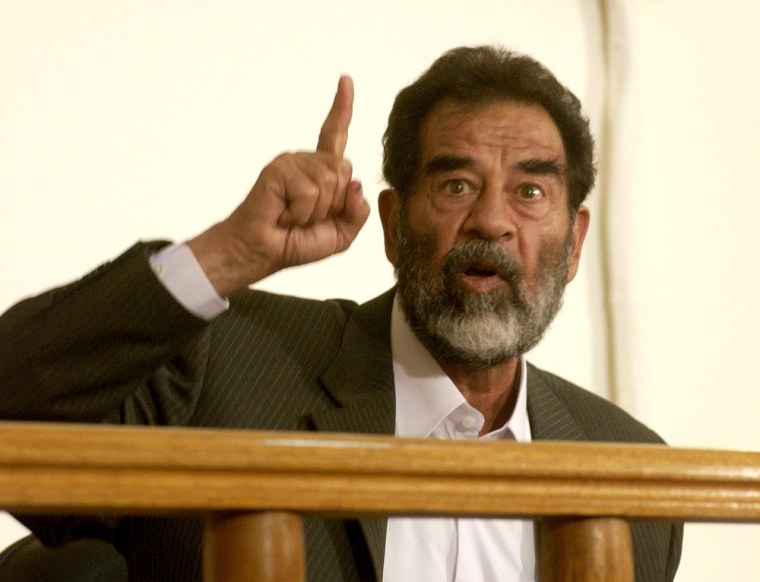Former dictator Saddam Hussein will stand trial for a range of charges — from gassing thousands of Kurds to executing political and religious leaders, according to a list of the cases against him obtained from the special tribunal Monday.
Saddam could face up to 500 charges at the tribunal, but he will be tried on only 12 well documented counts because prosecuting him on all would be a “waste of time,” the prime minister’s spokesman said Sunday.
Laith Kuba also said Saddam was likely to be tried within the next two months on a range of charges, including alleged crimes committed in Iraqi Kurdistan.
“There should be no objection that a trial should take place within that time,” Kuba said during a press conference. “It is the government’s view that the trial of Saddam should take place as soon as possible.”
Focus high-profile cases
A list obtained by The Associated Press early Monday from the special tribunal, which will hear the case against Saddam and 11 of his henchmen, showed that prosecutors seem to be concentrating on 14 cases concerning his alleged crimes. Many received international attention during Saddam’s three decades in power.
The list contained few details, but among the crimes the tribunal says Saddam committed were:
- Executing at least 50 Iraqis in 1982 in the Shiite town of Dujail, 50 miles north of Baghdad, in retaliation for a failed assassination attempt against Saddam.
- Killing and deporting 8,000 members of the powerful Kurdish Barzani tribe, of which the current Kurdistan Democratic Party leader, Massoud Barzani, belongs.
- The 1988 chemical weapons attack on the Kurdish town of Halabja that killed an estimated 5,000 people.
- Executing prominent religious and political figures.
- Ordering the seven-month occupation of Kuwait that was ended by the 1991 U.S.-led Gulf War.
- The 1991 suppression of a Shiite uprising in southern Iraq.
Iraqi authorities believe the trial against Saddam will have a major effect on curbing the violent insurgency, which has killed at least 844 people since the new Shiite Muslim-led government was announced April 28, according to an Associated Press count.
No date has been set for the trial of Saddam, who has been held in a U.S.-run detention facility in Baghdad since being captured in December 2003.
He was arraigned July 1 in Baghdad on broad charges including killing rival politicians over 30 years, gassing Kurds in the northern town of Halabja in 1988, invading Kuwait in 1990 and suppressing the Kurdish and Shiite uprising.
